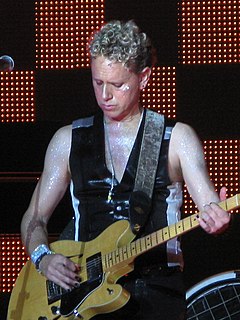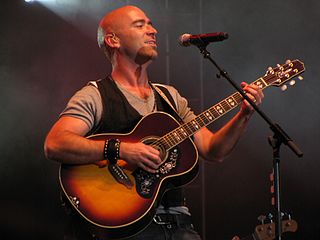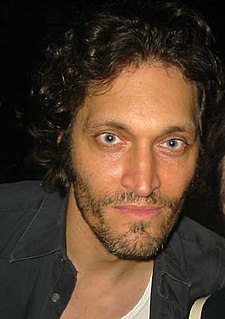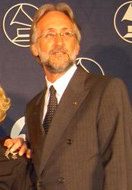A Quote by Martin Gore
People are People still gets played to death on '80s stations. It was our first big break in America. It's not exactly my favorite song.
Related Quotes
Those first big concerts we played as 'Throwing Copper' started to really reach people worldwide - I think we played our first big arena show at the George Estate basketball arena down in Atlanta. I remember showing up and standing on stage and just being like, 'I can't believe this is going to be full of people. This is huge.'
You used to have to come to America for 18 months and drive around in a van, trying to get radio stations to play your song. But I remember One Direction's manager telling me that the first time they came to America, they hadn't released a song - they'd only been on 'The X Factor.' But there were 2,000 fans waiting at LAX airport.
But I saw this video, not even the whole thing, and I just knew that it was going to be my favorite song for...for the rest of my life. And it still is. It's still my favorite song... Lincoln, I said you were cute because I didn't know how to say--because I didn't think I was allowed to say--anything else. But every time I saw you, I felt like I did the first time I heard that song.
A lot of these reality-TV shows people go on, they come off, and nothing happens. You never hear from them again. Fifteen seconds of fame is not the name of the game. No matter how big you break, or how many people you break in front of, you still have to slowly build a fan base to have anything loyal and lasting from people.
Jazz stopped being creative in the early '80s. After your acoustic era, where you had the likes of the Miles Davis Quintet, when it gets to the '70s it started being jazz fusion where you had more electronic stuff happening, then in the '80s they started trying to bring back the acoustic stuff, like Branford Marsalis and the Wynton Marsalis & Eric Clapton sextet. It started dying down from there. Miles was still around in the '80s and he was still being creative; he was playing Michael Jackson songs and changing sounds, but a lot of people were still trying to regurgitate the old stuff.
Because U.K. artists aren't compensated when their music is played on U.S. radio stations, U.S. artists aren't compensated when their records are played on U.K. stations based on the fact that there's no reciprocity. If that income came in, our artists would be paying income taxes on it. So if we can get a lot of policy on the radar, that may have some positive influence.




































